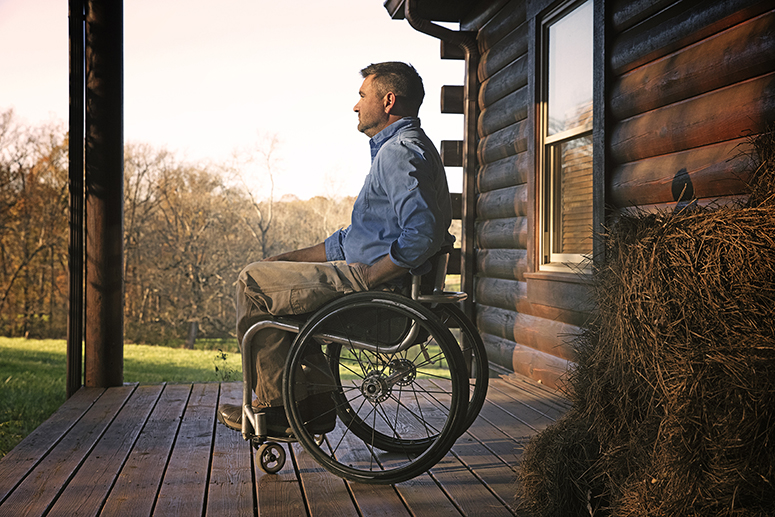Physical and social distancing are key to controlling the Covid-19 pandemic. It’s important for SCI patients, who may already be experiencing depression and anxiety related to their condition, to understand how to manage this new social isolation.
The more that is learned about Covid-19 and its transmission, the more we realise one of the simplest and most common ways to avoid exposure is through physical distancing. However, physical distancing can sometimes lead to social isolation, especially in the case of SCI patients.

Social isolation is the absence of relationships and interactions with other people and can lead to serious mental health issues like depression and anxiety. Research has revealed a higher proportion of depression and anxiety in people with an SCI than in the general population. When you add to this the limited personal interaction resulting from physical distancing during the time of Covid-19, the implications for SCI patients are clear.
That’s why being able to recognise the signs of social isolation are so important. If you experience any of the following symptoms, you may want to reach out to your carer or a mental health professional: marked changes in mood, eating or sleep; excessive anxiety; prolonged sadness, depression or apathy; thoughts of harming yourself or others, or of suicide; increased substance use; and excessive anger, irritability or hostility.
That’s not to suggest that social isolation is a given. If proper steps are taken, managing and maintaining one’s health and mental well-being – even during a pandemic – is quite possible.
Step 1 – Look after your general health
There are direct links between mental health and physiological health. That’s why, in SCI patients especially, it’s important to practice behaviour that promotes general health. Stay physically active. Have proper nutrition. Hydrate. Get enough sleep. These are simple things you can do every day to maintain physical health, which affects your mental health.
Step 2 – Manage your worry
With so much being unknown about Covid-19, it is easy to fall into a spiral of worry. Worrying is normal, but it’s important to recognise when your worrisome thoughts interfere with your ability to do day-to-day activities that keep life normal. Some ways to limit this are noticing (and limiting) your exposure to things that make you worry, practicing postponing your worry to another time and, when it comes to information and news about Covid-19, relying on reputable sources.
Step 3 – Set a routine
Social isolation can take away from our sense of purpose. By establishing a routine, not only do you maintain a sense of normality in unprecedented times, but you can also actually use this structure to work on or accomplish tasks. This helps give us purpose. Indeed, the predictability of structure itself offers a level of sorely needed comfort in unpredictable times.
Step 4 – Stay connected
One of the benefits of living in the digital age is that even when we are socially distanced, we have numerous platforms to reach out and stay connected. Video chatting, messaging and social media platforms are all great ways to connect with loved ones, co-workers and carers whilst remaining safe at home. And, as restrictions loosen yet remain in place, when connecting in person, consider small group outings where physical distancing can still be practiced.
Step 5 – Stay informed
Studies have revealed that staying informed and up to date with the latest health information on Covid-19 safety protocols can reduce the psychological impact of the pandemic, including lower stress, anxiety and depression. Be aware of and practice the recommended safety precautions on a regular basis and you will gain confidence in your ability to cope with these uncertain times.
Step 6 – Reach out
We all face new challenges from time to time, which may lead to fear, confusion or the desire to withdraw. Know that these are normal reactions and there is no shame in seeking assistance to help you overcome them. As a matter of fact, recognising this need and acting upon it are signs of strength. There are many carers and support groups waiting to help you. Reach out.









